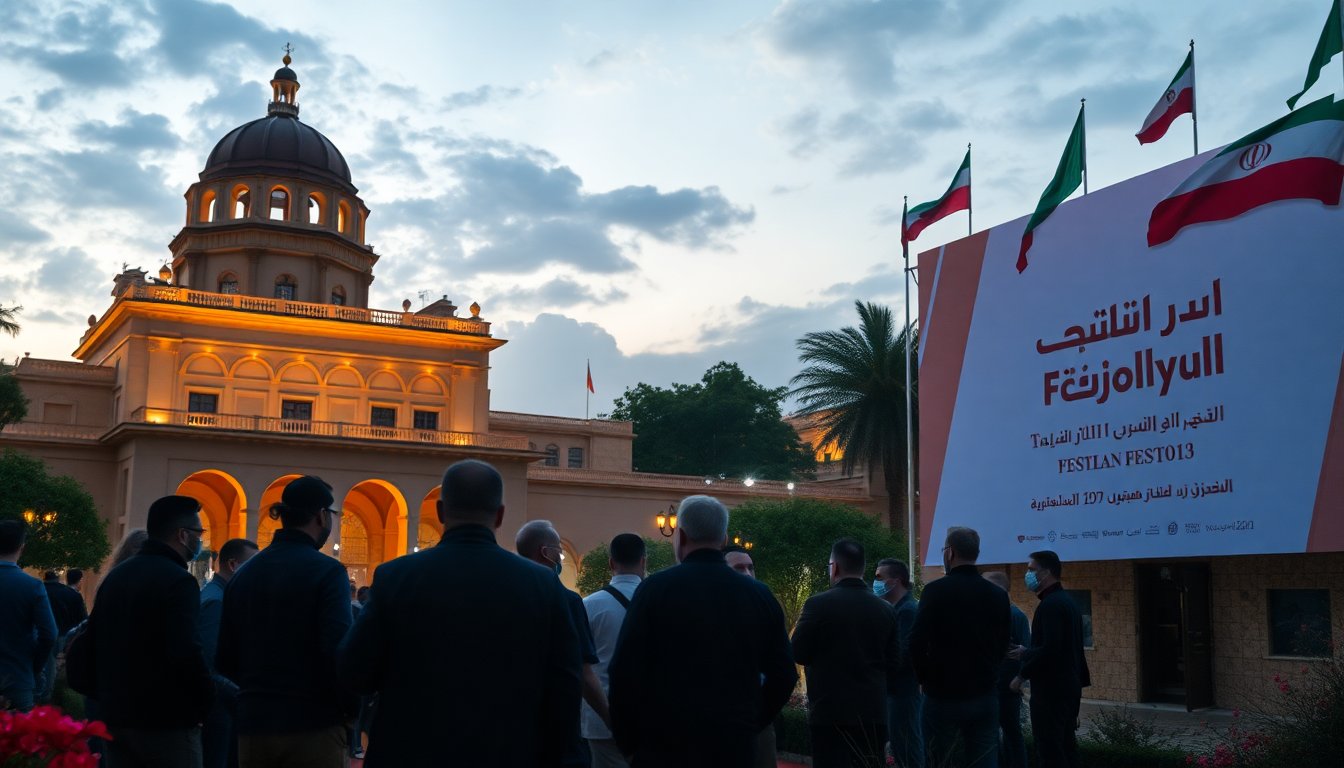Table of Contents
Renowned Turkish filmmaker Nuri Bilge Ceylan is facing criticism from the Iranian Independent Filmmakers Association (IIFMA). The backlash arises from his decision to participate as a special guest at the upcoming Fajr Film Festival, a state-run event in Iran. Ceylan won the prestigious Palme d’Or at the Cannes Film Festival in 2014 for his film Winter Sleep.
The Fajr Film Festival, one of Iran’s premier cinematic events, is scheduled to take place in Shiraz from November 26 to December 3. The festival aims to showcase 45 films from 30 different countries, according to the Islamic Republic News Agency.
Details of the festival and Ceylan’s involvement
According to the festival’s official website, filmmaker Nuri Bilge Ceylan will attend as a special guest and is expected to serve as the jury president. Ceylan is known for his critically acclaimed works, including Three Monkeys (2008), Once Upon a Time in Anatolia (2011), The Wild Pear Tree (2018), and the recent About Dry Grasses (). However, he has not yet responded to inquiries from Variety regarding his role at the festival.
Response from the Iranian Independent Filmmakers Association
The International Independent Film Makers Association (IIFMA), led by Iranian producer Kaveh Farnam, who resides in Dubai, has expressed its concerns in an open letter addressed to filmmaker Nuri Bilge Ceylan. The letter underscores a conflict between Ceylan’s artistic vision, characterized by humanistic and intellectual themes, and his decision to participate in a festival organized by a government accused of serious human rights violations.
In the letter, the IIFMA urged Ceylan to reconsider his attendance at the festival. They argued that his presence could unintentionally enhance the Iranian government’s narrative of its cultural landscape, which contrasts sharply with the harsh realities faced by artists in Iran who endure censorship and repression.
Current challenges faced by Iranian filmmakers
The cinematic landscape in Iran faces significant challenges amid ongoing political unrest. Filmmakers contend with strict state regulations that severely limit creative expression. Directors such as Jafar Panahi and Mohammad Rasoulof have been imprisoned for creating works deemed politically subversive.
The Iranian Independent Film Makers Association (IIFMA) highlighted violent crackdowns on protests, particularly during the “Woman, Life, Freedom” movement, which resulted in numerous deaths among demonstrators at the hands of security forces. This environment has fostered skepticism toward state-sponsored events like the Fajr Film Festival, which many perceive as propaganda intended to obscure the harsh realities of life under the current regime.
The role of state-sponsored events in Iran
The International Iranian Film and Media Association (IIFMA) has raised concerns about the Iranian government’s efforts to reshape its global image following a severe crackdown on dissent. One prominent example cited is the Fajr Film Festival, which the government uses to project an appearance of cultural vibrancy. However, this portrayal is not widely accepted among many in the Iranian creative community.
In their letter, the association warned that filmmaker Nuri Bilge Ceylan’s participation in the festival could be viewed as a compromise of his respected status. They argue that his involvement might inadvertently bolster the Iranian government’s narrative, overshadowing the struggles of those who endure repression.
As the festival date nears, the art community is closely monitoring the situation, contemplating the ramifications of Ceylan’s participation and the broader implications for international artists operating in environments characterized by human rights violations.


